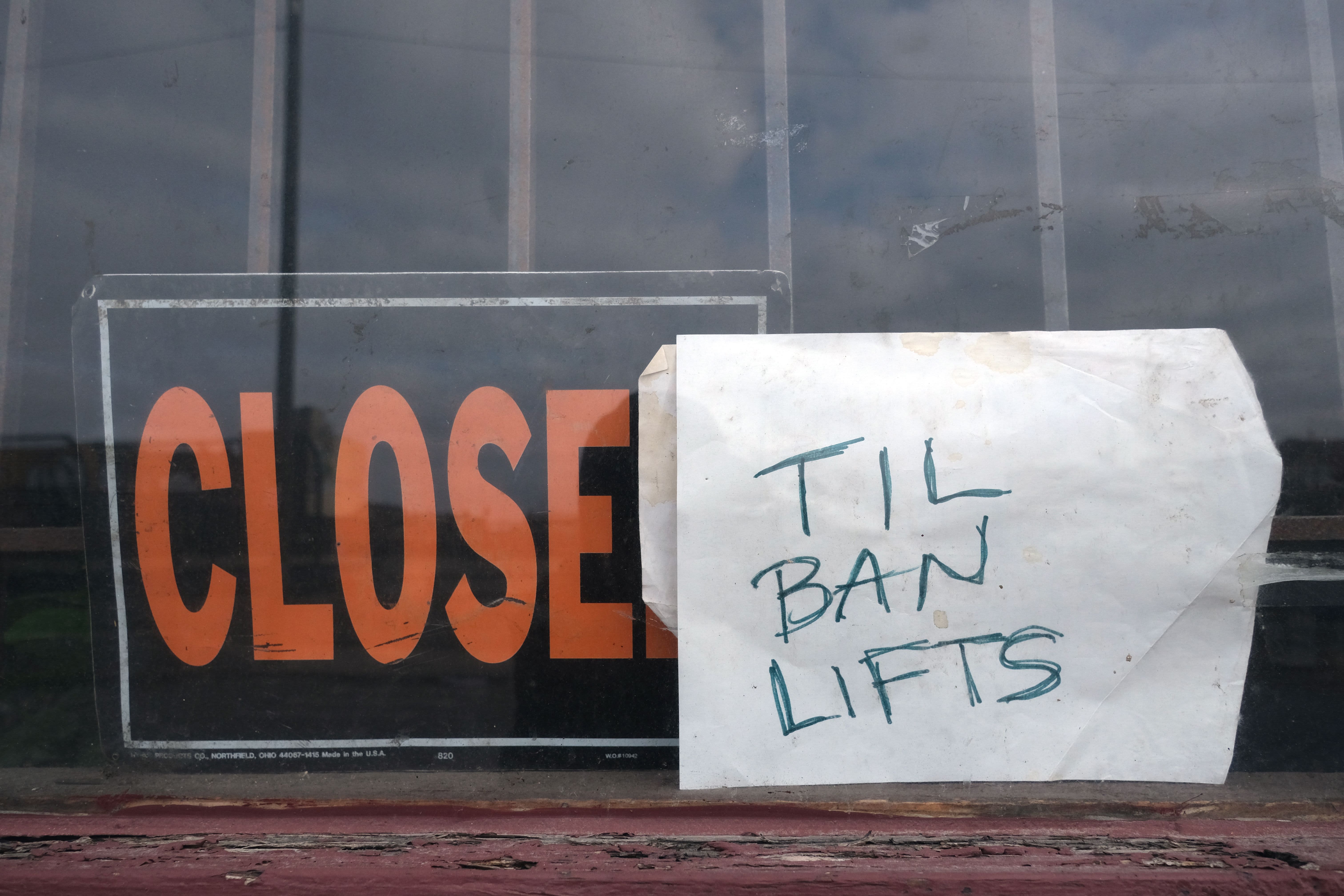Small businesses are getting a potential lifeline from Congress.
The massive $2 trillion economic rescue package — expected to get final approval from Congress on Friday — includes provisions aimed at helping smaller employers weather the economic storm brought on by the coronavirus pandemic.
“We are cautiously optimistic that this will provide the cash flow that small businesses needed yesterday,” said Kevin Kuhlman, senior director of federal government relations at the National Federation of Independent Business. “But we’re worried it may be too little too late.”
A local business is closed until the state sanctioned three weeks “stay at home” order is lifted in Detroit, Michigan March 24, 2020.
Seth Herald | AFP | Getty Images
As businesses across the country shut down amid efforts to contain the spread of coronavirus, some have faced steep drops in revenue, along with employee layoffs, as they struggle to stay afloat. There are roughly 31 million small businesses that employ 59 million workers across the nation, according to the Small Business Administration’s Office of Advocacy.
The legislation, called the Coronavirus Aid, Relief and Economic Security Act, includes a $350 billion loan program for businesses with fewer than 500 employees (including sole proprietors, independent contractors and anyone otherwise self-employed). Under the bill, loans can be used to meet payroll and cover certain other expenses like utilities or insurance premiums. And, borrowers will be able to apply for loan forgiveness.
The new loans will be available through private financial institutions — i.e., banks, credit unions — that participate in the Small Business Administration’s lending network, although the Treasury Department may expand that to include non-network lenders, Kuhlman said.
Under the CARES Act, the loans can be for as much as 2.5 times payroll or $10 million, whichever is less. Payments can be deferred by up to a year, and businesses will be able to apply for forgiveness of the loan (or a portion of it), based on the amount used during the eight weeks following loan approval. Any amount not forgiven would have a maximum interest rate of 4%.
The bill also waives typical SBA loan requirements that credit must be unavailable elsewhere and that the borrower must personally guarantee the amount or provide collateral.
If you are a small-business owner hoping to qualify for one of these loans, start by reaching out to your bank.
“See if they are in the SBA’s network or if they’ll be participating in the program,” Kuhlman said. “See if there’s anything you can do in advance to get ready for it.”
